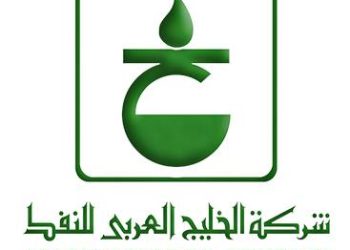By Sami Zaptia.

London, 5 August 2021:
The Minister of Economy and Trade discusses activating the role of the Credit Guarantee Fund in supporting the national economy.
The Minister of Economy and Trade, Mohamed Hwej, held an expanded meeting on Monday at the Ministry’s headquarters, which included the Undersecretaries of the Ministries of Economy, Labour, Planning and Local Government, a representative of the Prime Minister’s Office, the Director of the Banking and Monetary Control Department at the Central Bank of Libya, the head of the Credit Guarantee Fund to discuss ways to activate the fund’s role in supporting and developing the national economy.
During the meeting, they discussed the legal and financial problems facing the fund’s management in performing its tasks and working to address them in a way that contributes to raising the level of performance and enhancing its role in supporting small and medium enterprises and encouraging the trade and investment sectors.
Analysis
It will be recalled that Libyan governments have been talking about activating the Credit Guarantee Fund since the Qaddafi era – without any results.
The role of the Credit Guarantee Fund is to guarantee for the banks the loans they give out. Libyan banks are reluctant to lend. There is a conservative culture built-in from the Qaddafi era. This is partly because the legal system does not guarantee them recourse to the courts to confiscate funds or assets.
Equally, there is no culture in banks of lending. Banks make enough money from Letters of Credit and government deposits that they don’t need to take bigger risks with loans to businesses.
Islamic Sharia banking
On the other hand, the January 2013 Decree banning the charging of interest has made things even more complicated for the already conservative/lazy banking system in Libya. Islamic banking was introduced suddenly overnight. Banks did not have time to learn, understand or train for Islamic banking.
The lack of a credit rating agency
Banks like to take calculated risks. They take lending decisions based on data. In the developed world banks use credit ratings to assess a potential debtor. In Libya, the Central Bank of Libya started working on a credit rating agency during the Qaddafi era – but it has never been fully activated – discouraging banks from lending.
Legacy of disputed property rights
Libyan banks also suffer from the Qaddafi era laws that made squatters/dwellers owners of any property they were occupying at the time of the law’s promulgation. This has left many properties in disputed ownership – which again discouraged and continues to discourage banks from giving out loans.
The need for capital to drive investment and the economy
With this background, its no wonder Libyan banks cannot be bothered to lend. However, while that may have been ok for the period 1979 to 2011, the world as well as Libya have moved on.
The End of Oil
The role of hydrocarbons is on the wane. Libya’s population has grown to 6.9 million. The needs of Libyans has changed. The average Libyan is no longer content with the minimalist socialist Qaddafi society. Simply providing subsidised food, electricity and petrol is not enough. People want cheap internet, travel, the latest gizmos and entertainment.
Failure of the socialist, command system
Besides, the centralized command state system failed miserably. The state failed to meet the changing demands of the public. Satellite TVs, mobile phones, the internet and regular travel had changed the expectations of the average Libyan. The Qaddafi regime failed to appreciate or react to this in time.
The private sector is the future
Libya’s new future has to be based on a competitive private sector. The private sector needs to have access to capital for investment and this means having a functioning banking system with all the necessary regulations to enable it to work efficiently. This is where the state Credit Guarantee Fund comes in. However, no government since the last decade of the Qaddafi era has had the imagination or knowhow to implement it.
Opinion: Libya’s credit crunch | (libyaherald.com)
Seven banks to contribute LD 150 to Credit Guarantee Fund | (libyaherald.com)








